 The innate structure of the Internet is free: a series of personal computers, servers, and routers that produce data and transmit it around the world in seconds based on a simple series of universal protocols. It took human intervention to cage the Internet.
The innate structure of the Internet is free: a series of personal computers, servers, and routers that produce data and transmit it around the world in seconds based on a simple series of universal protocols. It took human intervention to cage the Internet.
For the second session of the Global Voices Summit we invite you to explore the tension between freedom and repression currently being fought online by activists in Kenya, Iran, Egypt, Morocco, Singapore, and Hong Kong.
While the Internet has allowed Kenyans to take action during a dark moment of their country's history and fueled the pro-democracy blogger movement in Egypt, censorship and surveillance are daily realities for digital activists in Morocco, Singapore, Hong Kong, Iran, and Egypt as well. Yet, as all these cases demonstrate, despite pervasive censorship the Internet can still act as freer frontier, where government does not grasp quite so tightly as in the real world.
Through these cases and the discussion that follows we will explore the contest between freedom and repression on the Internet, ask in which direction the trend is moving, and think about what we as activists and users can do to give freedom the upper hand.
Speakers
Ory Okolloh is a Kenyan lawyer, political activist and blogger. She is a graduate of Harvard Law School and is the co-founder of Mzalendo a website that tracks the performance of Kenyan Members of Parliament. She is also the co-founder of Ushahidi, a website that grew out of the political crisis in Kenya and that maps both incidents of violence and peace efforts. She is currently based in Johannesburg, South Africa where she works as a consultant for several NGOs and manages her various activism efforts.
Wael Abbas is a Cairo-based citizen-journalist and blogger who blogs at Misr Digital (Egyptian Awareness).Wael is the first blogger ever to be given the prestigious Knight International Journalism Award for his work on documenting human rights violations through online video.
Mehdi Mohseni was born in Ghom, Iran, in 1979 and at present lives in Ahvaz. He graduated in civil engineering and started to work as journalist in 2000. He was cultural, art, political and finally as chief editor of weekly journal, Neday-e-Jonoob between 2000 to 2006. Now he writes for some daily reformist newspapers in Iran and also does web and graphic design. He started to write his own blog with Jomhour title (Jomhour means People) in 2000. He writes often about political, social and cultural events and some time about sex issues, human rights and economy. The government filtered the Jomhour 5 times and Mehdi was forced to change his domain.
Amine is an entrepreneur and human rights activist. He is interested in the role of free web-based and mobile technologies in contributing to grassroots development and human rights advocacy. He co-founded DigiActive.org as way to highlight successes, share best practices, and help foster a community of people committed to studying and promoting digital activism globally. He has been involved in the intikhabat2007.com project, a submission-driven photoblog covering the Moroccan elections, the HelpFouad.com campaign to free Morocco's “facebook prisonner”, and has in the past consulted for international development organizations, the private sector, and non-profit organizations.
Oiwan Lam is the Northeast Asia editor of Global Voices Online and a founding member of Hong Kong In-media and inmediahk.net, a citizen journalist website in Hong Kong. She has professional journalist experience and now teaches part-time on Cyber-politics in the Chinese University of Hong Kong.
Alex Au has been blogging since 1996 at www.yawningbread.org, well before blogs were invented, and is himself a generation older than the typical blogger. He has been one of the leaders of Singapore's gay rights movement (People Like Us) since 1993 and more recently has also been active in the nascent human rights movement (Maruah). In the last 2 years, he has contributed 3 chapters to various books published by Singapore's political think-tanks and is a regular speaker at various forums, universities and colleges.


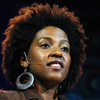
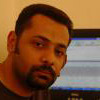
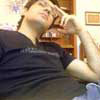
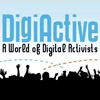
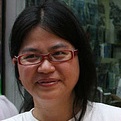







3 comments